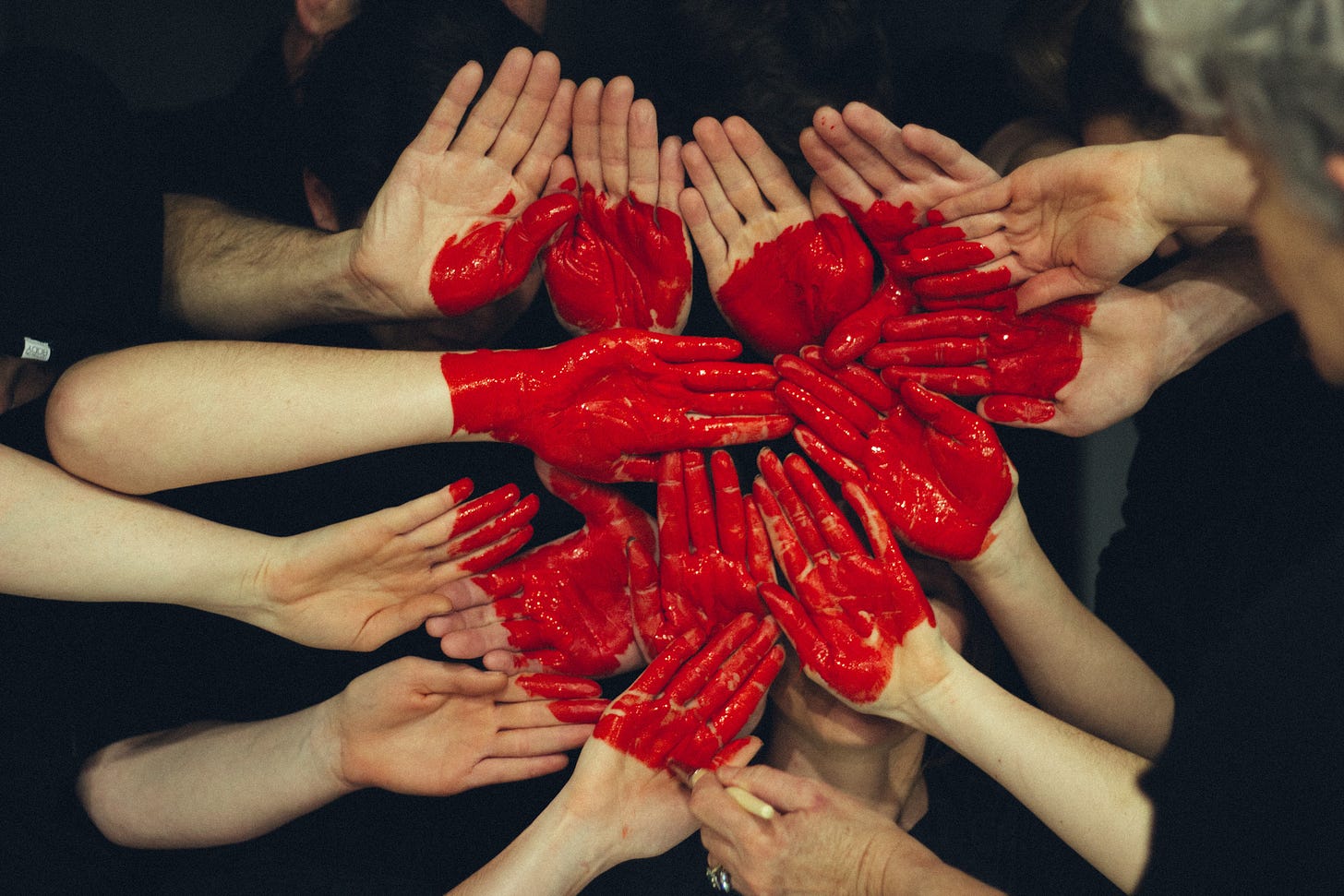“Books at their best are the distillation of our vulnerable heart: they speak to human hunger, compassion and the necessity of imagination.”
Photo by Tim Marshall on Unsplash
The Kindness Test is the world’s largest study into the everyday experience of kindness. In a public science project between BBC Radio 4 and the University of Sussex with more than 60,000 responses, Robin Bannerjee, principal investigator and Professor of Psychology at the University of Sussex found what makes us kinder – and what’s getting in the way.
Three kindness revelations
The study found:
• a connection between kindness and wellbeing: those who said they receive, give or notice more acts of kindness also reported higher levels of wellbeing
• misguided worry halts kindness: the most common barrier found to kindness was a concern about it being misinterpreted
• empathy is at the core of kindness: the word most commonly associated with kindness is empathy.
It’s empathy that I want to explore a little more today.
Robin joined authors Lemn Sissay, Manjeet Mann and Katherine Rundell for this year’s Empathy Conversation to talk about how empathy and reading go hand in hand.
At just two months old, Lemn went into the British care system living through dehumanising experiences such as being sent back by his foster parents because ‘the devil had got into him’, as well as what he calls, “18 years of betrayal, secrets, lies, beatings and incarceration.”.
Despite this, when asked how he felt about it, Lemn says: “Pain is relative to your own experience and all that pain gave me the gift of seeing empathy in others. The worst thing that could have happened to me was the best they could do. You just need to use your imagination and empathy to understand their experience.”
And imagination is so critical to writing, but so is the ability to put yourself in someone else’s shoes.
Enter empathy.
Robin describes the psychology of empathy as a combination of at least three key elements:
the affective emotional dimension – sharing the emotional experience of others
the cognitive dimension – not just experiencing someone else’s emotions vicariously but finding an understanding of why they feel that way
and the empathic concern – translating understanding into action by caring and wanting to do something to help.
All of these lead us straight back to kindness. But where else do empathy and kindness weave together?
Katherine says:
“The deep intricacy of the human heart means that so much of the way we act is a blend of trauma, emotion and intuition.”
Oof. That wallops. Tell me more, Katherine.
“Even in the smallest example of bullying, often what seems to come from thinking ‘they did this deliberately’ isn’t done with confidence and certainty. We’re all acting with nuanced and chaotic impulses that control us. And books can be an incredibly valuable way to reach that conclusion.
“There are so many wildly different ways of being and the people we encounter are an amalgamation of these differences. Empathy deepens our connection with each other – and we’ve never needed it more.”
If you don’t know her, Katherine is a children’s author who believes ‘the only time kids fully understand the world they inhabit is when they read’.
An extract from Katherine Rundell’s book, Why you should read children’s books, even though you are so old and wise
So if reading builds our real-life empathy, does talking about books make more of a difference than simply reading them alone?
Katherine says: “Talking about someone’s story is an ongoing salute to the complexity of human chaos. It can be a bonding experience – because doing it about real people is bitching, right – but grouping together to discuss the complexity of a fictional character helps us make the effort to understand the rich complexity of humanity.”
Lemn talks about how it feels when we revisit a book by a person that’s now off-limits because of a present-day reason that wasn’t as visible when it was written: “The distress we feel when we can no longer uphold that book is deeply connected to a unique relationship formed in childhood. That book is a conduit to the person – and the tendrils that come from books to readers are deeply rooted in nostalgia.”
Robin calls back the nostalgia of opening a children’s book and looking at well-loved words and pictures: “There are emotional, not rational, reasons to love fiction.”
And literature has a powerful role in building empathy which starts in childhood. But Katherine goes even further with the idea: “When we go into adulthood there’s a suggestion that imagination is an optional extra and I’d always encourage every adult to continue their attachment to reading children’s books. But some of those books are very different now.
“To children, I’d say reading is a front-row seat into someone else’s heart. To adults, I’d say books are an empathy engine but on your own terms. You could choose to only read books that teach you to empathise with white boys. When I was at school I didn’t study a single book with a female hero or a protagonist of colour.
“But empathy has to be deeply politically informed: it can’t happen in a vacuum. It has to be historical, competent empathy; it can’t be untrammelled. And so where we lay down or suck up our empathy is more complex in adulthood, but it is a choice we can all make.”










Thank you Elle. I’ve had to read this slowly and carefully. So are so very smart. I think about the children and young people who don’t get the opportunity or guidance to read and to build empathy and instead learn through popular youth culture such as drill music. The moral compass is set in a completely different direction .
I also consider those who are without empathy and the lack of kindness they display and the heartbreak that becomes of it
Keep writing beautiful girl 💕